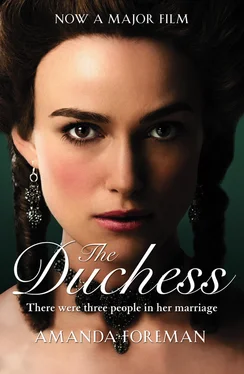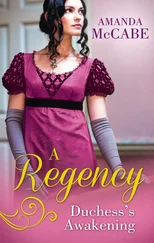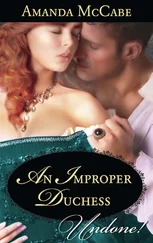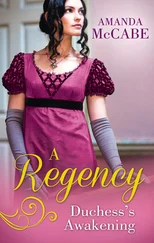At first the fortunes of the party fluctuated as its leaders gained or lost favour at court, and factions fought for control. By 1714, however, the Whigs had crushed the rival Tory party and from then on they experienced little opposition except from disgruntled members within their own party. The first two Georges suspected the defeated Tories of having Jacobite sympathies – certainly some had links with the exiled heir of King James – and proscribed the party from office. By the time the twenty-two-year-old George III ascended the throne in 1760 the terms Whig and Tory had become almost obsolete. Instead there were different factions of Whigs led by rival politicians. The Cavendishes, Pelhams and Russels had been in power for so many years that political office seemed theirs by right; they were entirely unprepared for what followed. The new King’s first act was to dismiss the cabinet. He had long regarded the Whig leadership as a cynical and corrupt rabble, and in their place he appointed his tutor, Lord Bute, to form a new government.
The fourth Duke of Devonshire was among the casualties. Without warning the King removed him from his post as Lord Chamberlain and had his name scratched from the Privy Council. After a lifetime spent serving the court this graceless demotion was an insult which the Duke would never forgive nor the party forget. When he died a few years later his sixteen-year-old son William (who was never referred to as anything except ‘the Duke’) inherited the quarrel and automatically became heir-presumptive to the leadership of the Whig party. But a contemporary politician, Nathaniel Wraxall, who knew him well, bemoaned the fact that the Whigs had to rely on a man so ill-suited to public life: ‘Constitutional apathy formed his distinguishing characteristic. His figure was tall and manly, though not animated or graceful, his manners, always calm and unruffled. He seemed to be incapable of any strong emotion, and destitute of all energy or activity of mind. As play became indispensable in order to arouse him from his lethargic habit, and to awaken his torpid faculties, he passed his evenings usually at Brooks’s, engaged at whist or faro.’ 40
The Duke had had a lonely upbringing which was reflected in his almost pathological reserve. One of his daughters later joked that their only means of communication was through her dog: ‘the whole of tea and again at supper, we talked of no one subject but the puppies … I quite rejoice at having one in my possession, for it is never a failing method of calling his attention and attracting his notice.’ 41 However, behind the Duke’s wooden façade was an intelligent and well-educated mind. According to Wraxall, his friends regarded him as an expert on Shakespeare and the classics: ‘On all disputes that occasionally arose among the members of the club [Brooks’s] relative to passages of the Roman poets or historians, I know that appeal was commonly made to the Duke, and his decision or opinion was regarded as final.’ 42
The Duke had barely known his mother, Lady Charlotte Boyle, who died when he was six. The fourth Duke had married her against his own mother’s wishes. There was no clear reason for the Duchess’s objection – she called it ‘an accursed match’ – particularly since Lady Charlotte brought a vast fortune to the family, her father, the Earl of Burlington, having no heir. But the Duchess would have nothing more to do with her son; when he died ten years later she made no attempt to see her grandchildren. The fifth Duke, his two brothers Lords Richard and George, and sister Lady Dorothy, were brought up in cold splendour in the care of their Cavendish uncles.
Georgiana’s future husband was only sixteen when he came into an income that was twice Lord Spencer’s; by one account it amounted to more than £60,000 a year. His property included not only the magnificent Chatsworth in Derbyshire and Devonshire House in London, but five other estates of comparable grandeur: Lismore Castle in Ireland, Hardwick House and Bolton Abbey in Yorkshire, and Chiswick House and Burlington House in London. He was one of the most sought-after bach-elors in London – although Mrs Delany was mystified as to the reason why. ‘The Duke’s intimate friends say he has sense, and does not want merit,’ she wrote. But in her opinion he was boring and gauche: ‘To be sure the Jewell has not been well polished : had he fallen under the tuition of the late Lord Chesterfield he might have possessed les graces , but at present only that of his dukedom belongs to him.’ 43 As one newspaper delicately put it, ‘His Grace is an amiable and respectable character, but dancing is not his forte.’ 44
Superficially, the Duke’s character seemed not unlike Lord Spencer’s: however, behind a shy exterior Georgiana’s father concealed strong feelings. One of his few surviving letters to Georgiana, written after her marriage, bears eloquent witness to his warm heart: ‘But indeed my Dearest Georgiana, I did not know till lately how much I loved you; I miss you every day and every hour.’ 45 The twenty-four-year-old Duke had no such hidden sweetness, although Georgiana thought he did. Knowing how awkward her father could be in public, she assumed that the Duke masked his true nature from all but his closest confidants. The fact that her parents treated him so respectfully also elevated the Duke in her eyes. The Spencers were extremely gratified by the interest he showed in their eldest daughter, and it did not escape Georgiana’s notice that she was being watched; she knew that her parents wanted her to succeed.
By the end of summer, having danced with the Duke on several occasions and sat near him at numerous dinners, Georgiana had fallen in love with the idea of marrying him. His departure from Spa in the autumn of 1772 upset her greatly; she feared that he would make his choice before she was grown up. ‘I have not heard that the Duke of Devonshire is talked of for anybody,’ her cousin reassured her after receiving an enquiry about a rumour linking him with Lady Betty Hamilton. ‘Indeed I have heard very little of him this Winter.’ 46 Lady Spencer, on the other hand, was relieved that the Duke had not made a formal offer. Even though there could be no more illustrious a match, she did not want her daughter to be a child-bride. Georgiana ‘is indeed a lovely young woman,’ she confided to a friend, ‘very pleasing in her figure, but infinitely more so from her character and disposition; my dread is that she will be snatched from me before her age and experience make her by any means fit for the serious duties of a wife, a mother, or the mistress of a family.’ 47
In fact the Duke had already made up his mind to marry Georgiana. She was an obvious choice: socially the Spencers were almost equal to the Cavendishes, she had a large dowry, she seemed likely to be popular and, most important, she was young and malleable. Despite Lady Spencer’s reservations, discussions between the two families began in earnest while the Spencers were still abroad, and were concluded after they returned to England in the spring of 1774. By now Georgiana was almost seventeen and preparing to make her entrance into society. Hers was not to be an arranged marriage in the sense of those common a generation before. 48 She was not exchanged in lieu of gambling debts, nor thrown in as part of a political alliance. * However, it cannot be said that Georgiana had been free to make a proper choice. Unlike her mother she had not been out for several seasons before her marriage, and she had not accepted the Duke because she loved him ‘above all men upon Earth’. She would go to any lengths to please her parents, and that included thinking herself in love with a man she hardly knew. But her happiness at his proposal convinced the Spencers that they were facilitating a love-match.
Читать дальше












